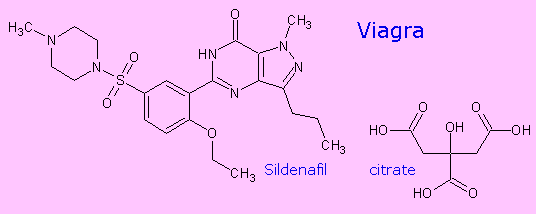
When it comes to keeping up appearances, even a bucketful of gooey oysters, half a dozen XXX videos and a smattering of sensual massage don’t always have the desired result. In desperation, even tiger penis tea and rhino horn – is it hung round the neck, or what? – sound more appealing than the best medicine had to offer those who are willy nilly: a drug to circumvent the problem injected straight into the penis through the front opening in one’s underwear. A romantic interlude before lovemaking I don’t think. More a case of ‘take away the pain Doctor, but leave the swelling’.
Then along came Viagra – which was just swell! A solution, or rather a pill, for that little bedroom engineering problem. Medical science had come good, providing a much-needed boost for flaccid men the world over. With medical approval in hand, pharmaceutical company Pfizer launched their product on to a desperate market shooting to number one almost overnight. Prozac? Who needs it when Viagra gets to the root?
The story began several years ago when scientists found a tiny gas molecule called nitric oxide (NO) acting as a chemical communicator in our cells. Importantly, for sexual health, the release of NO by cells in the penis activates an enzyme called guanylate cyclase. This crucial reaction makes another molecule, cyclic guanosine monophosphate (cGMP). CGMP relaxes penile smooth muscle allows the arteries to expand and so blood rushes in giving an erection.

Normally, a second enzyme (PDE5 found mainly in the penis) gradually breaks down cGMP so without continued stimulation an erection flops. Pop a Viagra though and this second enzyme is blocked. Even the most flaccid of penis will release some NO with erotic stimulation and once it does there is no PDE5 available to damp it down again and for two-thirds of men erection will ensue – within an hour.
Viagra, aka sildenafil citrate, was originally to be a drug for treating angina and high blood pressure. When patients failed to return spare tablets after the clinical trial, though, Pfizer suspected something was up. It turned out that one side-effect was a spontaneous and sustained erection. Pfizer grasped the potential in treating what the doctor will call erectile dysfunction – ‘not getting it up’, to you and me. After the usual safety checks, they carried out a trial on more than 3000 patients aged 19 to 87 to see what effect the drug would have on impotent men and whether it could help them achieve a satisfactory sexual result. Rather than use video cameras to monitor ‘activity’, Pfizer opted for a questionnaire approach and trusted the patients, to be honest.

The responses tallied with anecdotal evidence from the heart patients: Viagra gets it up regardless of problem, general health, race, or age. The amazing thing is that Viagra gets it up in four out of five men regardless of why they are limp. There are so many causes of impotence, from psychological and old-age to injury and prostate problems, that a drug aimed at curing any one problem may not have been so successful. Viagra, or to give it its proper chemical name 1-{[3-(6,7-dihydro-1-methyl-7-oxo-3-propyl-1H-pyrazolo [4,3-d]pyrimidin-5-yl)-4-ethoxyphenyl]sulfonyl}-4-methylpiperazine citrate (here is the pdb file), is satisfaction almost guaranteed despite the name being more of a mouthful than the tiny sky-blue diamond tablets.
Viagra has been available in the USA on prescription since March 1998 and, according to George Dunea of the Cook County Hospital in Chicago writing in the British Medical Journal that year, has probably led to a lot of doctors there with writer’s cramp pumping out almost two million prescriptions! Shares in Pfizer quickly reached a high plateau and should be sustained with anticipated billion dollar sales for next year – sex truly does sell.
Everything in the bedroom is not rosy though – far from it. One bizarre side-effect experienced by some users is a strange blue-green hue to their vision. The colour blindness passes but aside from jokes about too many erections making you blind, some eye specialists are worried about long-term effects on sight. Viagra has also been blamed for headaches, hot flushes, rash, dizziness, diarrhoea, priapism (sustaining an erection for hours after orgasm) and Pfizer provide an even longer list in the accompanying notes.
There is also the tragedy of sixteen men who have died while allegedly using the drug. Eight others died during the clinical trials. There is concern that simply resurrecting your sex life with a drug could have been the cause, with hearts pumping blood to places it has not been for a while. Most victims were in their sixties and seventies, and most had heart problems or diabetes. Although this does not prove that Viagra may have side-effects on the heart – Pfizer’s clinical research found that reduced blood pressure could occur.
Another problem has reared its ugly head too. It did not take long for people to realise that if Viagra can boost the ego, so to speak, of impotent men, then it could probably double the efforts for those without problems. Healthy men claiming impotency may be among the biggest beneficiaries of those millions of prescriptions. Popping a Viagra in the hope of giving even an active sex life that extra rise.
Not surprisingly, an Internet blackmarket quickly emerged with genuine Viagra as well as dubious products called Veagra and Viagre being marketed. Viagra is fast becoming a recreational drug and the UK’s Medicines Control Agency has even set up The Special Enquiry Unit of ‘V-men’ to hunt down anyone illegally selling Viagra. Once Viagra is made available on the NHS later this year, the government has said that individual GPs will be responsible for making sure only needy patients are prescribed it and they will be responsible for the outcome. There have already been more than a dozen attempts to market Viagra illicitly in Britain.
With abuse of drugs come increased risks, especially for particular users. Certain social groups have known for many years that a group of compounds known as organic nitrates (amyl nitrate/nitrite, or poppers, are probably the best known) can speed your pulse, boost libido and allegedly make sex a more fast-paced and thrilling experience. While there are numerous nitrate-based prescription drugs too for treating hypotension including some based on nitroglycerine – the opposite of high blood pressure. The problem is that anyone taking these drugs with Viagra could suffer plummeting blood pressure and possibly death. There have been reports of patients taking nitroglycerine treatment for low blood pressure who have experienced blackouts but doctors are warned to check for other medications and drugs before prescribing Viagra.
But what about the ladies? Pfizer is currently carrying out trials in Europe and discussions are taking place in the US to see whether women with sexual dysfunction, reduced libido, or lubrication problems (which can start at menopause) might benefit from taking the drug. There is now evidence that male erectile dysfunction might be more closely related to similar problems in women where blood flow to the genitals is just as important in sex. What’s sauce for the goose…after all.
There could soon be an alternative to Viagra. Vasomax (phentolamine) made by Zonagen is still passing through the approval pipeline. It apparently has the distinct advantage over Viagra in having only a 20 minute pre-love period. It’s also safer for patients taking nitrates. Pfizer, of course, intend to pre-empt approval of Vasomax and are working on a wafer form of Viagra that would be absorbed through the tongue and so act much more quickly.
The Public Health Minister Tessa Jowell has announced that Viagra will be available by prescription this year, but declined to say how the prescriptions would be limited and exactly how patients would be assessed for need.
Anyone, thinking about Viagra must weigh up the risks. The best bet might be to give the soft lights, romantic music and oysters another try. If you do opt for Viagra just pray you don’t discover you suffer from premature ejaculation…
Article by David Bradley
Science Writer originally appeared in the BBC Tomorrow’s World magazine.
Footnote added subsequently: But, what about the question of dissolving it in water? Sildenafil citrate is orally available, so presumably it dissolves in water but I doubt the manufacturers will be creating a fizzy version any day soon.
Since this article was first published several other drugs have come available – Cialis, Levitra, Uprima (goes under the tongue, sub lingually as it were), and new delivery methods for Alprostadil.


